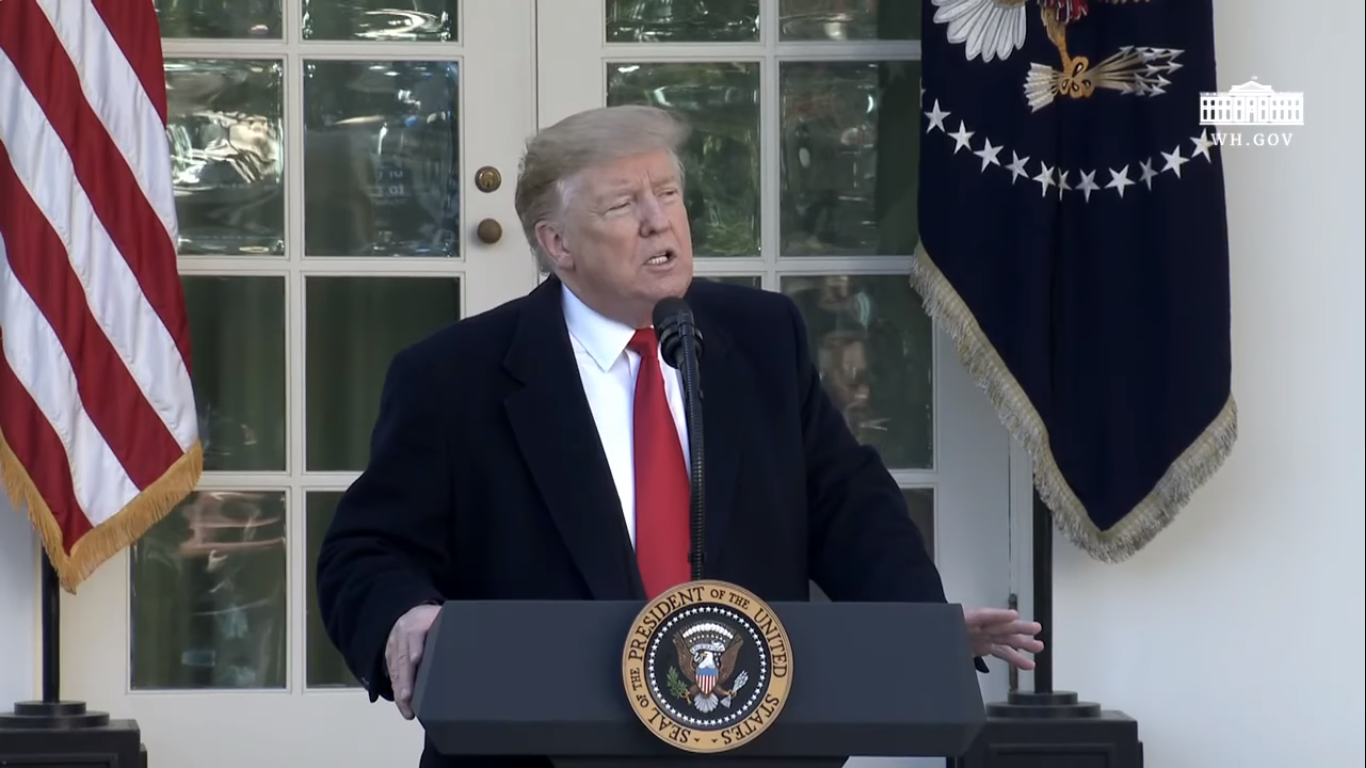News
New York authorities subpoena Trump insurance broker

New York regulators have sent a subpoena to the Trump Organization’s longtime insurance broker, a request that comes days after President Donald Trump’s former attorney, Michael Cohen, told Congress the president had misled insurers about the value of his assets. (Photo Screen grabbed from White House/Facebook)
New York regulators have sent a subpoena to the Trump Organization’s longtime insurance broker, a request that comes days after President Donald Trump’s former attorney, Michael Cohen, told Congress the president had misled insurers about the value of his assets.
The brokerage, Aon, told The Associated Press on Tuesday it intends to co-operate with the inquiry by New York’s Department of Financial Services, the agency that regulates the insurance industry.
Donna Mirandola, a spokeswoman for the brokerage, declined to discuss the specifics of the request. “We do not comment on specific client matters,” she wrote in an email.
The Department of Financial Services declined to comment. The Trump Organization did not return messages seeking comment.
The document request comes amid a flurry of criminal, civil and congressional investigations into the president and his business dealings by multiple agencies, including two U.S. House committees controlled by Democrats.
A person familiar with the investigation said the Department of Financial Services had reached out to Cohen and he agreed to co-operate in the inquiry.
The person wasn’t authorized to talk publicly about the matter and spoke to the Associated Press on condition of anonymity.
The New York Times, which first reported the subpoena, said the nine-page subpoena sought a wide range of records but did not allege any specific wrongdoing. The newspaper said the subpoena sought communications and records regarding Aon’s business with Trump over the past 10 years and internal Aon contracts and records relating to Trump.
During testimony before the House Oversight Committee last week, Cohen presented three years of Trump’s financial documents he said showed Trump inflated the value of his assets in part to lower his insurance premiums. He said Trump would provide the falsified statements to insurers “so that they would understand that the premium, which is based sometimes upon the individual’s capabilities to pay, would be reduced.”
The Trump Organization hasn’t commented on the specifics of Cohen’s allegations, but Trump, in several tweets, called his statements to congress “fraudulent and dishonest.”
Experts said Trump would have an incentive to exaggerate his wealth for some types of insurance, including surety bonds. Local governments often require developers to get this kind of coverage so, if the developer goes bankrupt, there is backup money to go ahead with paving roads and other infrastructure projects promised by the developer.
Another possibility is what’s known as a “retrospectively rated” insurance policy, which can act as a quasi-loan to the company buying the coverage. With these policies, if there were a fire at one of Trump’s buildings or big worker’s compensation claims and an insurer paid Trump for the losses, Trump would then be required to hand back to the insurer part of that payment years into the future.
It isn’t clear if the Trump Organization has taken out such policies.
Asked in his testimony about who at the Trump Organization would know about the alleged insurance manoeuvrs, Cohen mentioned three executives, including Chief Financial Officer Allen Weisselberg, who began working for the Trump family four decades ago.
The House Intelligence Committee said it plans to invite Weisselberg to testify.
The House Judiciary Committee announced its own wide-ranging inquiry Monday into “alleged obstruction of justice, public corruption and other abuses of power by President Trump, his associates and members of his administration,” seeking documents from dozens of people in Trump’s inner circle and business.
Trump has castigated those investigations, initiated after Democrats won control of the House, as meritless and politically motivated.





















